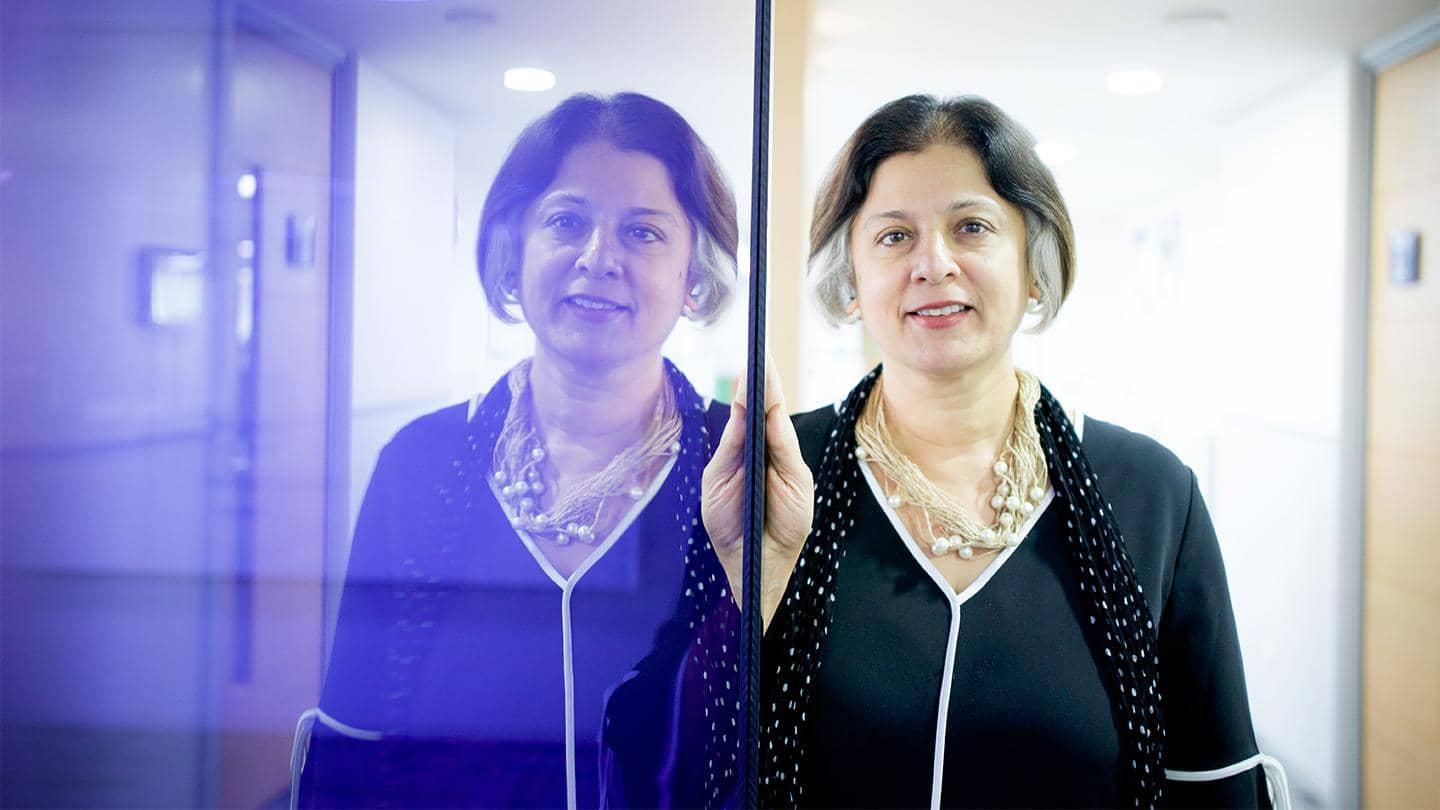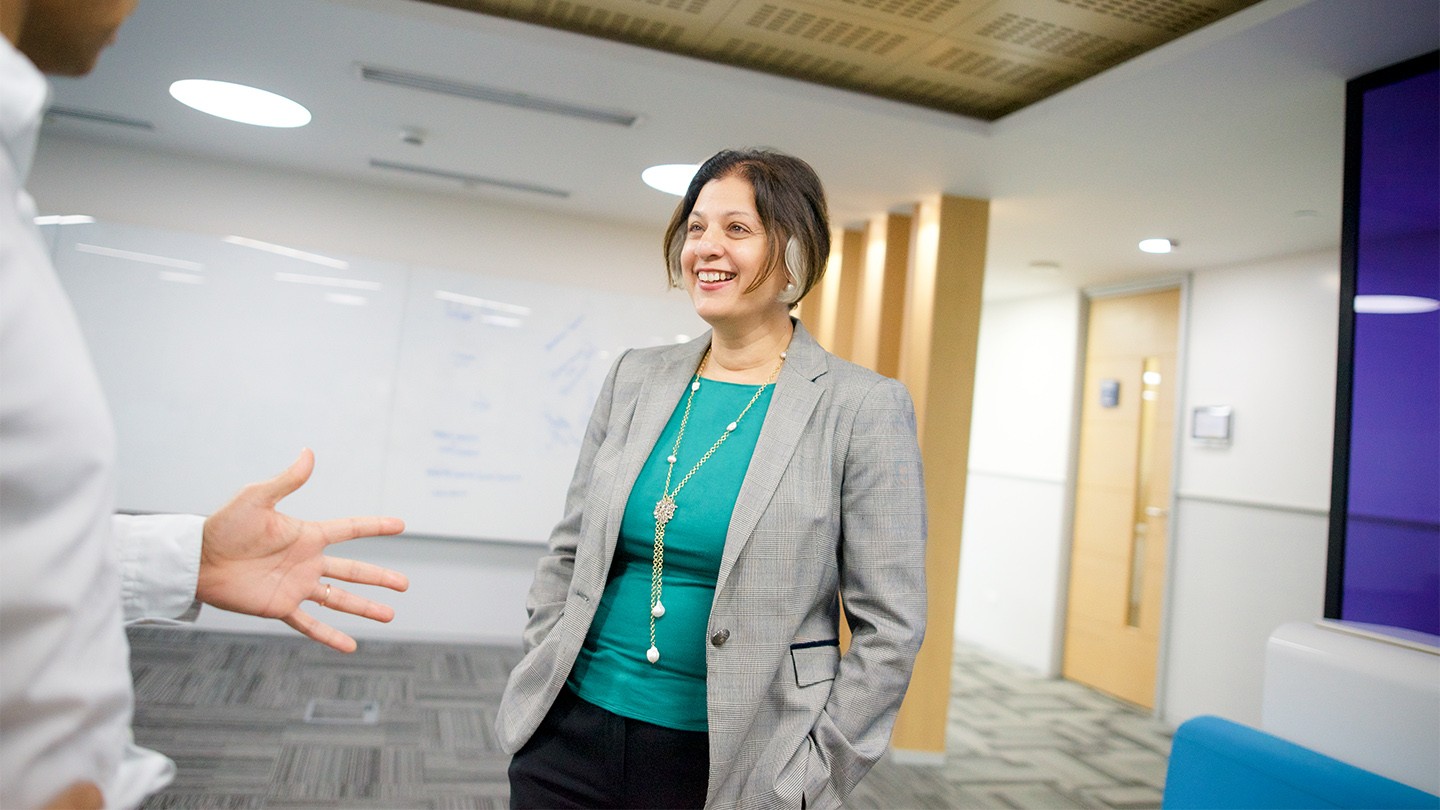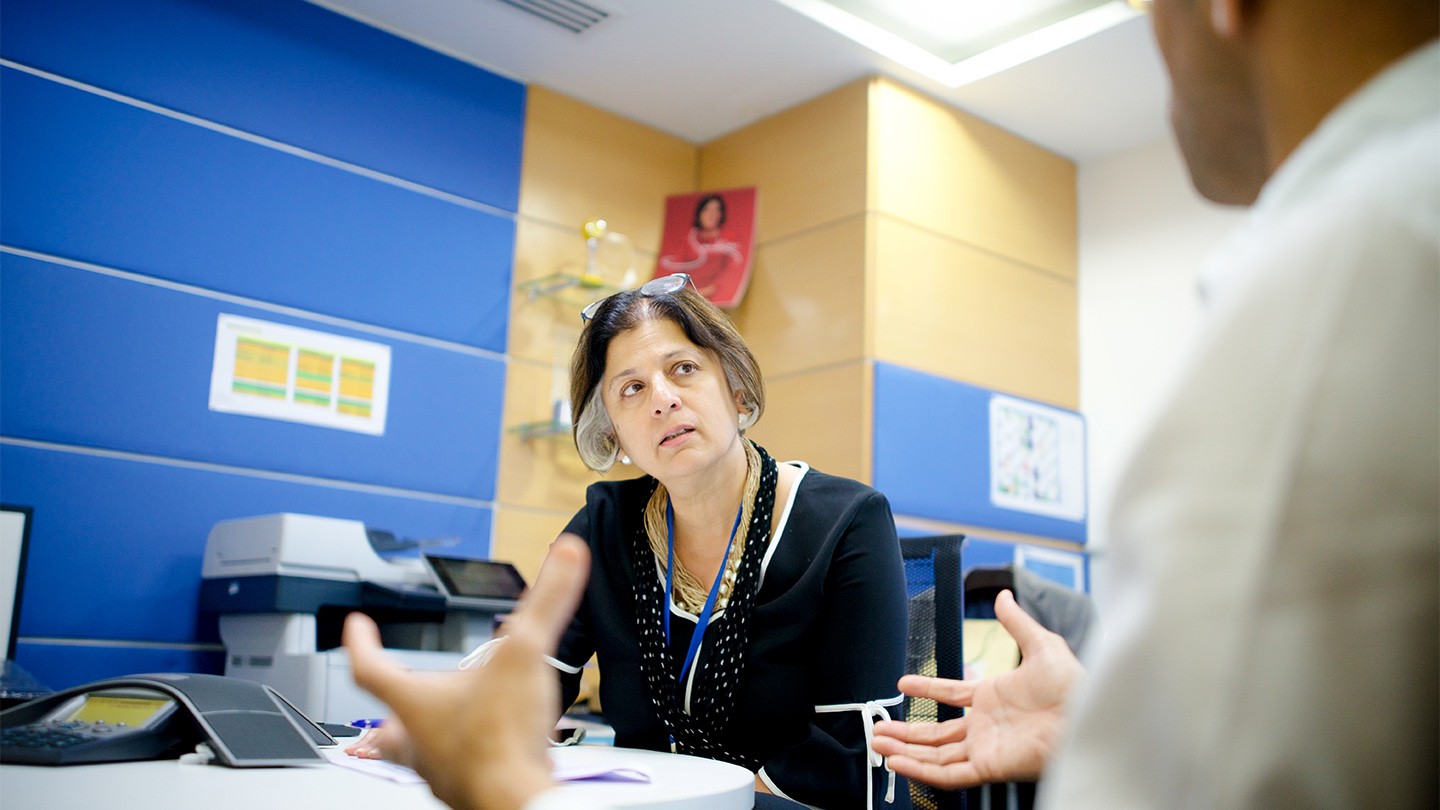
Culture
Leading Questions: Uma Ratnam Krishnan
The Co-CEO of Barclays Global Service Centre shares the leadership lessons she’s learned in a career spanning government, technology and financial services in the UK and India – and why “connecting and communicating” with your team is more important now than ever.
What was your early work experience?
My first job was nothing to do with banking. I started my working life as a diplomat, and that initial work has certainly helped my later career. I took an MBA at the Indian Institute of Management, and at the end of that left the government for a corporate career.
What have you learned about leadership on your career journey?
I’ve benefited hugely from working with inspirational leaders who encouraged me to take additional responsibility and try new things – making sure that I pushed my boundaries. In hindsight, they helped me build resilience as a leader and be confident that it’s fine to continue with something that doesn’t go right the first time.
At a previous bank, when I was offered a job building a credit cards business, I looked at my boss and said, ‘I really don’t know anything about credit cards’ and he said, ‘That’s fine. I’ve seen you work and you’ll learn.’ That was a huge leadership lesson. I believe that if I can inspire people to build their potential, then that’s a large part of being a leader.
During the first week or so of the coronavirus crisis, being a leader was about showing resilience and courage, recognising that you don’t have all of the answers – and continuing to be authentic and provide clarity to your team
Co-CEO Barclays Global Service Centre

Photo taken pre-COVID-19
How would you describe your leadership style?
Leadership styles are different for different roles – whether through size of team or geographic spread – but the fundamentals of how you inspire and allow people to deliver their best remains the same. The most important thing I’ve learned is the need to connect with each individual, even in the smallest way. For example, if you picked up on the fact that someone’s child is poorly, and two days later you ask, ‘How’s your child doing?’ the effect it has as a leader is amazing. It’s about having empathy with and interest in those you’re working with.
You also need to inspire people to a vision, while building an environment that allows them to bring their best. When you run a large branch network, there’s no way you can be on top of every single detail, so you learn to trust and delegate.
How has the coronavirus pandemic affected your approach to leadership?
During the first week or so of the coronavirus crisis, being a leader was about showing resilience and courage, recognising that you don’t have all of the answers – and continuing to be authentic and provide clarity to your team. This was a perfect instance of leading in a volatile, uncertain, complex and ambiguous world – being truly caring about colleagues and customers and ensuring minimal business impact.
Barclays is supporting colleagues in every possible way in terms of tools and resources which have been fundamental to our ability to work from home. Barclays is also financially supporting the community in India to fight the pandemic which is a cause close to colleagues’ hearts.
The most important thing is communicating and connecting more than usual with colleagues and finding interesting ways to do this – from sharing videos on working from home to creating a network of colleagues who can support those in need. I have focused a lot on bringing the teams together to check in on how everybody is doing and also how the work is going.
The commitment and dedication of colleagues in these uncertain times to deliver for our customers and stakeholders has been truly extraordinary. I believe we will work through this together and in the spirit of not wasting a good crisis, learn to adapt to new ways of working.

Photo taken pre-COVID-19
When you’re starting a career, you don’t need a grand plan. You need an ambition and an attitude to keep learning and making a difference
Co-CEO Barclays Global Service Centre
What’s your advice for those moving into a leadership role in a new organisation?
For me, the first three to six months are critical. I don’t come in saying, ‘I need to fix this, this and this’. I spend the first 60 days listening and trying, formally and informally, to talk to as many people as I can. I think that in large complex organisations, you need to understand all the stakeholders to achieve success: who influences what, what you need to know in order to achieve your goals. In that process you’ll identify people you can reach out to – people who have corporate memory and history.
After that, you play back to the key stakeholders what you’ve learnt and you establish your aims to get that moving. The key questions are, ‘What am I here to do? How can I make a difference? Who are the people who can help me?’.”
Do you think there is a distinct style of leadership in the west and in India?
I’ve had the privilege of working for western companies both in the west and in India, and for two Indian companies in India. I think the fundamentals of a successful leader are aligned between the continents, but leading in a country like India has some unique nuances. Having the ability to bridge things that get ‘lost in translation’ between the UK and India helps in getting people from London HQ to understand things here, and vice versa.
I think the style of leadership in India is much more about emotional connections and in particular being seen. In my experience, that doesn’t seem as relevant in the UK and US – people from the west think the number of people who turn up at events in India is amazing, but it’s because they want to interact with you and engage with you.
The second thing I’ve found in India is that relationships go even further in helping your effectiveness as a leader than in the UK or the US. The country as a whole places a lot of importance on how much you make an effort to keep up relationships – if you have a relationship from 20 years ago, you can call on that if you’ve invested in it. People will go out of their way to keep relationships up.
The culture and ways of working are different and that makes leadership slightly different, but fundamentally the goals of inspiring a team and doing your best work are the same.
What advice would you give to someone aspiring to a leadership position?
When you’re starting a career, you don’t need a grand plan. You need an ambition and an attitude to keep learning and making a difference.
Is there such a thing as a work-life balance?
You can’t do everything. I had that realisation at a particular point in my career and made the decision to spend more time with my family. For me, work-life balance means being there for your family and your family being there for you. Between my husband, myself and my two kids, it means understanding each other’s priorities and being able to back each other up where required.